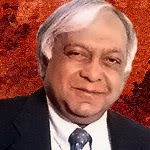Director (HR) & Director in-charge, InfoCom & CorpComm
New Delhi
May 25, 2001
Dear IndianOilPeople,
On 19th April, I completed 31 years with IndianOil. It was a long way from Management Trainee to Director of India’s only FortuneGlobal 500 Corporation; looking back today, the decades seem to have floated by.
I am leaving IndianOil for another PSU assignment. At this point of time, I’m overwhelmed by a sense of gratitude to all my teachers in IndianOil, from Fakira at Manmad to CR Dasgupta in New Delhi. They all trained me on the job, and passed on the spirit of IndianOil.
The spirit is that employment in IndianOil is not merely a source of livelihood. The pride in serving India unfailingly in war and peace. The commitment to ethics and integrity. The fellowship of professional managers. The joy of freedom to think. The activism of an MNC within the constraints of a PSU. The confidence in competence. The satisfaction of making beneficial change happen. The shelter of the IndianOil Family. And so much else.
Like so many others, I have had the good fortune to “live” IndianOil.
It was not roses all the way. Twice in my career, I had written out my resignation. The first time was a decade back, when I was passed over for a promotion, and then, deprived of work for several months. I felt then, and I know now, that these were unfair decisions. I went by the lesson in Iacocca’s book – don’t get mad, get even. The second time was more recent – a situation when official decorum, discipline, business interests and corporate image were being collectively, repetitively violated. Evidently, few colleagues – present and past - wanted to push me out of the way of their personal interests and ambitions. I tore up the resignation because I would not let IndianOil down by opting out in the face of adversity. Now, on the eve of my departure, I have been collectively accused, along with the Chairman, of “personal aggrandizement” in the business of IndianOil, in a suit filed before the Ahmedabad High Court. I will leave the matter to be judged.
But what really matters is the joy of being one of the IndianOilPeople. The tough times, and the shared laughter; the deprivations, and the wins; learning and teaching; the dreams and the achievements; the knowledge that like others, with others, I created value.
Today, we are at the threshold of fulfilling the Corporate Vision – an integrated, diversified, transnational energy provider with national leadership and commitment to community. In a matter of months, significant beginnings have been established in every identified area of growth. Oil & Gas is big business, and big business is not the arena for the faint-hearted. We must be clear in our strategic directions, and stay united, unwavering in our purpose. Either we create history, or we will become history.
Within, the HR agenda stands settled for all the constituencies – officers, workers and retirees. In each group, many of the benefits and processes available today would have been unimaginable three years back. You know it. Of course, expectations are endless. But the offerings must match the expectations. The complacence of job security and luxury of promotions for average performers may have to be given up, to advance to the stage of profit-sharing.
The ongoing deregulation brings in serious threats, and tremendous opportunities. Those who come second will get only the leftovers. IndianOilPeople can win. But, those who abuse their office by incompetence or indiscipline must be sent off the field so that the team does not lose out.
Away from IndianOil, I will always cherish your affection. Some of you would have felt hurt at times by my words or actions, but please believe me that it was never personal. Please accept my sincere regrets if you ever felt otherwise.
I will not be with you in the exciting times ahead. But every victory of IndianOilPeople will always let me re-live the spirit of IndianOil.
Mita joins me in wishing you and your family the best of luck. So long, and God bless you!
Jai Hind.
(Note: Fakira was an Operator at Manmad Depot where I went for field training as Senior Depot Manager in September-October 1970, and CR Dasgupta was Chairman, 1974-82).



